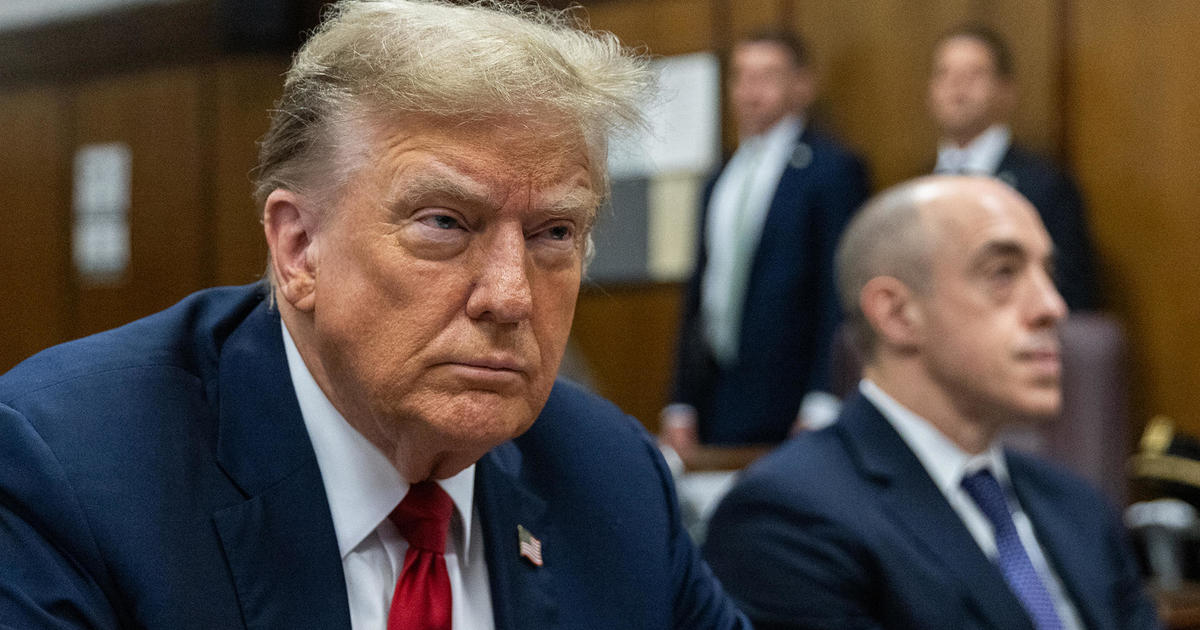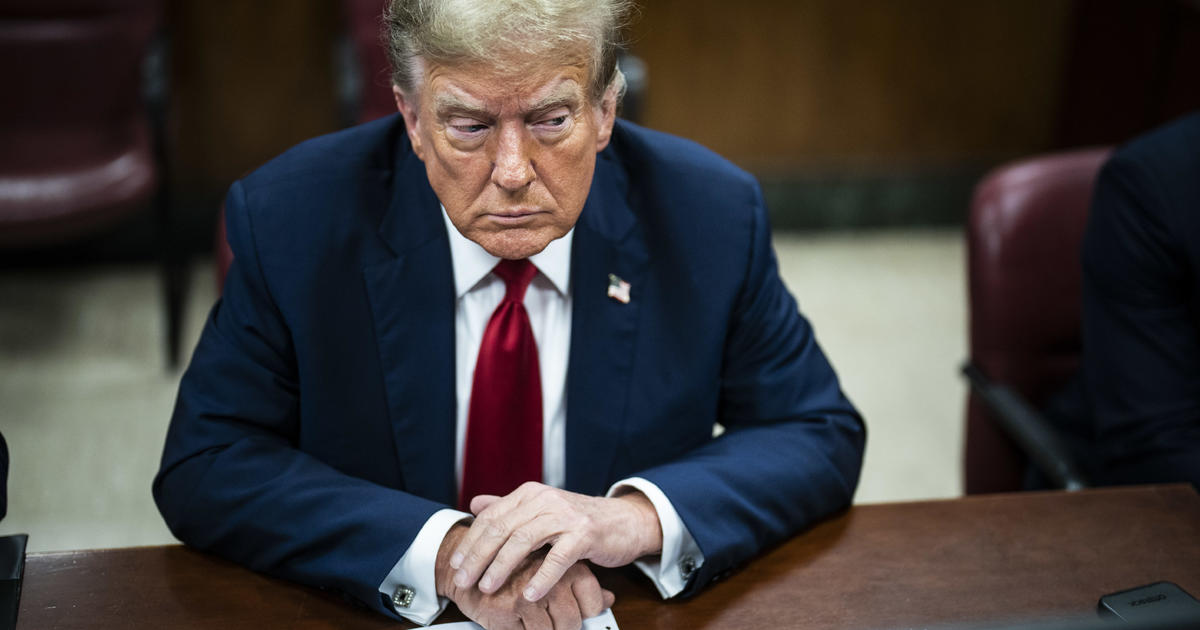North Korea says it will hold "ceremony" for dismantling of nuclear test site
SEOUL, South Korea -- North Korea says it will hold a "ceremony" for the dismantling of its nuclear test site on May 23-25, in a dramatic event that would set up leader Kim Jong Un's summit with President Donald Trump next month. Analysts say the closure of the site is mostly symbolic and doesn't represent a material step toward denuclearization.
In a statement carried by state media, North Korea's Foreign Ministry said that all of the tunnels at the site will be destroyed by explosion, and that observation and research facilities and ground-based guard units will also be removed. Last week, U.S. intelligence said the North Koreans had started pulling cables from the tunnels at their nuclear test site -- a first step toward closing them down, CBS News' national security correspondent David Martin reported.
"A ceremony for dismantling the nuclear test ground is now scheduled between May 23 and 25," depending on weather conditions, the Foreign Ministry's statement said on Saturday.
The North plans to invite journalists from the United States, South Korea, China, Russia and Britain to witness the dismantling process, it said. The journalists will be provided with a charter flight from Beijing to the North Korean coastal city of Wonsan, and from there they'll travel by train to the test site, according to the Foreign Ministry's statement.
The ministry said the North will continue to "promote close contacts and dialogue with the neighboring countries and the international society so as to safeguard peace and stability on the Korean Peninsula and over the globe."
Kim had revealed plans to shut down the nuclear test site during his summit with South Korean President Moon Jae-in last month. Following the Moon-Kim summit, Moon's office said Kim was willing to disclose the process to international experts, but the North's statement Saturday didn't include any mention about allowing experts on the site.
South Korea had no immediate response to the statement.
On Thursday, President Trump tweeted that his "highly-anticipated" meeting with Kim will take place in Singapore on June 12. "We will both try to make it a very special moment for World Peace!" he tweeted. The president's news came hours after he welcomed home three detained Americans following their release by North Korea. The three men, Kim Dong Chul, Kim Hak Song and Tony Kim, were released during a visit on Tuesday by U.S. Secretary of State Mike Pompeo.
Pompeo said Friday the United States aspires to have North Korea as a "close partner" and not an enemy, noting that the U.S. has often in history become good friends with former adversaries. Pompeo said he told Kim of that hope during his brief visit to Pyongyang, where he also he finalized details of the upcoming summit.
Pompeo also said his talks with Kim on Wednesday were "warm," ''constructive," and "good" -- and that he made clear that if North Korea gets rid of its nuclear weapons in a permanent and verifiable way, the U.S. is willing to help the impoverished nation boost its economy and living stands to levels like those in prosperous South Korea.
"We had good conversations about the histories of our two nations, the challenges that we have had between us," Pompeo told reporters at a news conference with South Korea's visiting foreign minister Kang Kyung-wha Friday. "We talked about the fact that America has often in history had adversaries who we are now close partners with and our hope that we could achieve the same with respect to North Korea."
He did not mention other adversaries by name, but Pompeo and others have often noted that the U.S. played a major role in rebuilding Japan and the European axis powers in the wake of the Second World War. With U.S. help, those countries recovered from the devastation of conflict.
"If North Korea takes bold action to quickly denuclearize, the United States is prepared to work with North Korea to achieve prosperity on the par with our South Korean friends," he said.
Seoul, which has shuttled between Washington and Pyongyang to set up the Trump-Kim meeting, has said Kim has genuine interest in dealing away his nuclear weapons in return for economic benefits. There are, however, lingering doubts about whether Kim would ever agree to fully relinquish the weapons he likely views as his only guarantee of survival.
During their summit at a border truce village, Moon and Kim vaguely promised to work toward the "complete denuclearization" of the Korean Peninsula, but made no references to verification or timetables.
North Korea for decades has been pushing a concept of "denuclearization" that bears no resemblance to the American definition. The North has been vowing to pursue nuclear development unless Washington removes its 28,500 troops from South Korea and the nuclear umbrella defending South Korea and Japan.
Some experts believe Kim may try to drag out the process to wait out the Trump administration or seek a deal in which he gives away his intercontinental ballistic missiles but retains some of his shorter-range arsenal in return for a reduced U.S. military presence in the South. This could satisfy Mr. Trump but undermine the alliance between Washington and Seoul.
Kim declared his nuclear force as complete in December, following North Korea's most powerful nuclear test to date in September and three flight tests of ICBMs designed to reach the U.S. mainland. At a ruling party meeting last month, North Korea announced it has suspended all tests of nuclear devices and ICBMs and the plan to close the nuclear testing ground. Kim said during the meeting that the nuclear test site's mission had come "to an end" because the North had completed the process of developing nuclear-capable intermediate-range missiles, ICBMs and other strike means.
The North also said for the first time at the meeting that it had been conducting "subcritical" nuclear tests. These refer to experiments involving a subcritical mass of nuclear materials that allow scientists to examine the performance and safety of weapons without triggering a nuclear chain reaction and explosion.
North Korea's reference to such activity is designed to communicate that even without underground testing, the country intends to maintain its nuclear arsenal and be a "responsible" steward of those weapons at the same time, said Andrea Berger, a senior analyst at the Middlebury Institute of International Studies.
Still, the closure of the underground testing site could be a useful precedent for Washington and Seoul as they proceed with the nuclear negotiations with Pyongyang, analysts say.
"Now that North Korea has accepted in principle that agreements should be verified, U.S. negotiators should hold them to this standard for any subsequent agreement," said Adam Mount, a senior defense analyst at the Federation of American Scientists. "It will make it more difficult for Kim Jong Un to deny inspections now that he has placed them on the table."
North Korea has invited the outside world to witness the dismantling of its nuclear facilities before. In June 2008, international broadcasters were allowed to air the demolishing of a cooling tower at the Nyongbyon reactor site, a year after the North reached an agreement with the U.S. and four other nations to disable its nuclear facilities in return for an aid package worth about $400 million.
But in September 2008, the North declared that it would resume reprocessing plutonium, complaining that Washington wasn't fulfilling its promise to remove the country from the U.S. list of state sponsors of terrorism.
The administration of George W. Bush removed North Korea from the list in October 2008 after the country agreed to continue disabling its nuclear plant. However, a final attempt by Bush to complete an agreement to fully dismantle North Korea's nuclear weapons program collapsed that December when the North refused to accept U.S.-proposed verification methods.
The North went on to conduct its second nuclear test in May 2009.



